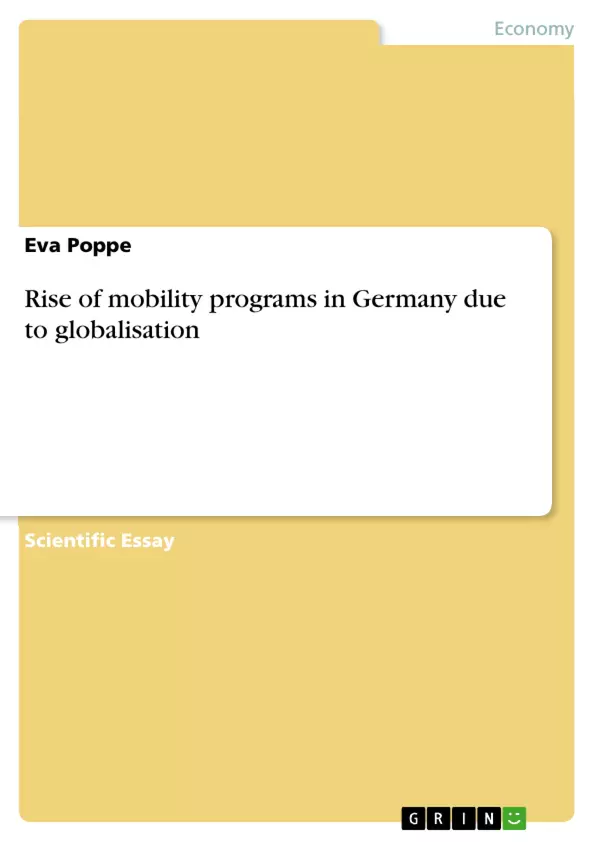Learning has come to the front position of the educational agenda in many countries of the world – the knowledge society, learning society, learning organization and so forth are the common terms now in the 21st century. The terms come into view in countless publications of the European Union and of many other countries in and outside the European Community.
The learning society is one of the products of globalisation and knowledge, learning and education are intertwined with global capitalism. Education is considered as a servant to global capitalism, enabling trans-boundary companies to gather more effectively in the knowledge society. Learning has become to a central task in governmental education policy in many countries and it is being treated as investment – adding value to human and social capital, resulting in employability and then in work, which makes an even greater distribution to the economy, rather than being treated as a natural human process that results in the improvement of people as human beings. Profound changes are taking place as a result of globalisation that is affecting the whole of the educational institution.
The objective of this contribution is to present Germany on its way to a knowledge society by examining the past and the present situation of Germany concerning mobility and furthermore mobility programs.
Inhaltsverzeichnis (Table of Contents)
- Knowledge society
- Globalisation Trends Europe
- German Internationalism
- Mobility programs Germany
Zielsetzung und Themenschwerpunkte (Objectives and Key Themes)
This contribution aims to provide a comprehensive analysis of Germany's journey towards a knowledge society by examining the past and present situation of mobility and mobility programs in the country.
- The shift from industrial economy to knowledge-based economy
- The impact of globalisation on education and training systems
- The role of mobility programs in fostering a knowledge society
- The importance of investing in human capital for economic and social development
- The challenges and opportunities facing Germany in the global knowledge economy
Zusammenfassung der Kapitel (Chapter Summaries)
- Knowledge society: This chapter explores the concept of the knowledge society, outlining its characteristics and the key drivers of its emergence, including the digitization of information and the rise of information and communication technologies (ICTs). It emphasizes the crucial role of knowledge and its dissemination in a global economy.
- Globalisation Trends Europe: This chapter delves into the broader impact of globalisation on European societies, particularly in relation to education and training systems. It highlights the need for a restructured learning system to address the challenges of diverse cultures and qualification systems within a globalized world.
- German Internationalism: This chapter focuses on the historical development of German companies and their impact on globalisation. It examines the role of foreign investment, the influence of the Marshall Plan, and the growth of German companies in the chemical and medical industries. The chapter also explores the impact of German culture and education on other nations.
Schlüsselwörter (Keywords)
The main keywords and focus topics of this text include: mobility programs, Germany, globalisation, knowledge society, learning society, education, training, human capital, economic development, social prosperity, innovation, ICT, digital technologies, and internationalism.
Frequently Asked Questions
What is a "knowledge society"?
A knowledge society is an economy and society where the creation, dissemination, and use of information and knowledge are the primary drivers of growth and prosperity.
How does globalization affect education policy?
Globalization treats education as an investment in human capital to ensure employability and economic competitiveness, often serving the needs of trans-boundary companies.
What role do mobility programs play in Germany?
Mobility programs are essential tools for fostering international exchange, enhancing skills, and helping Germany transition into a leading global knowledge society.
What was the impact of the Marshall Plan on German internationalism?
The Marshall Plan influenced foreign investment and supported the growth of German companies, particularly in the chemical and medical industries, aiding their global expansion.
Why is human capital important in the 21st century?
In a knowledge-based economy, human capital (skills and knowledge) is the most valuable asset for innovation and social prosperity.
- Citation du texte
- Eva Poppe (Auteur), 2007, Rise of mobility programs in Germany due to globalisation, Munich, GRIN Verlag, https://www.grin.com/document/90357



